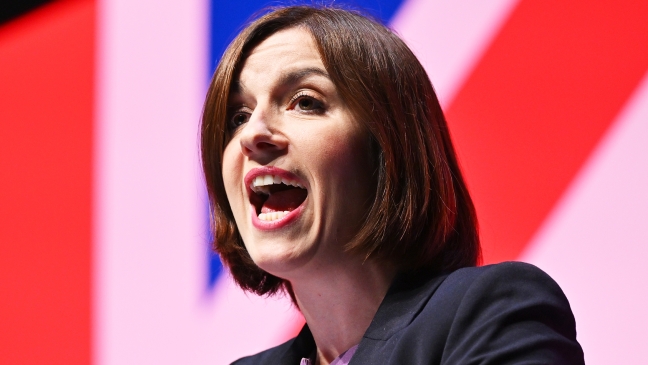Of all Labour’s policy announcements about education, there is one that is less headline-grabbing but nonetheless very significant - the promise of a “reset” in the relationship between the government and the profession.
Bear with me. I know this sounds like a slightly esoteric subject for a blog about the Labour Party conference where we’ve heard policy announcements such as the outline of a new approach to primary maths and an early years review.
But how that relationship works - between government, leaders and teachers - is fundamental to ensuring the voice of the education sector is a part of the way that policy is developed over the next few years, rather than an afterthought.
It is how we achieve the positive dynamic of “done with” rather than “done to”. In other words, this is about the “how” of policymaking rather than the “what”. It’s what we haven’t got at the moment.
Crackpot plan
Take prime minister Rishi Sunak’s Advanced British Standard announcement, for example.
As far as I know, there was no discussion with the sector whatsoever in formulating this policy. I’m not entirely convinced there was a great deal of discussion with the Department for Education for that matter. The whole thing seemed to emanate from Downing Street.
The government’s response is it will fully consult in due course and this is when educators will have the chance to put forward their views. But it is the wrong way around.
Sensible policymaking is not coming up with a crackpot plan and then asking for feedback. It is to work with the experts - that is you, the people who actually work in our schools and colleges - to develop a well-considered, deliverable proposal in the first instance.
We could have headed off such obvious issues as the inane name of the supposed new qualification (for a start it’s not actually British as it only applies to England).
For far too long we have had policies launched on the education sector - generally via stories placed in newspapers - and then an endless round of discussions to unpick the problems with those policies, with the government all the time desperately trying to save face.
Not that long ago, to give another example, an entire White Paper pretty much fell to pieces in disarray.
Mutual respect
This approach is a recipe for incoherent, chaotic policymaking, and it is hugely disrespectful to teachers and leaders.
So, when shadow education secretary Bridget Phillipson spoke at a fringe event on Monday about fundamentally resetting the relationship between the government and the sector, about the government having, for too long, undervalued and underappreciated the work of educators, about doing things on the basis of partnership and mutual respect - that was a significant moment.
You might expect me to say that as the leader of a trade union, particularly as the fringe event in question was one held by the Association of School and College Leaders, the NEU teaching union and the NAHT school leaders’ union.
However, Phillipson was frank in signalling that we’re not always going to agree with one another. And that’s right and proper. Labour - if it wins the next general election - will be the democratically-elected government, not us.
All we ask is that the policymaking of any government, whatever its political complexion, involves sensible, grown-up discussions where the government genuinely listens to the views of the profession and where policy is co-constructed.
Many issues to solve
Despite all the pressures on the sector - and to its immense credit - we have a very good education system in England, and across the UK. But there are huge problems that are holding us back in taking standards to the next level, and these problems are increasingly putting at risk what we have achieved.
Teacher shortages are critical, funding is impossibly tight, mental health problems are on the rise, the special educational needs and disabilities system is under huge pressure, and buildings are literally crumbling.
We have an accountability system that not only fails to recognise these issues but actively makes things worse, stigmatising schools and colleges and driving people out of the profession.
And we have an appallingly high rate of child poverty in the UK, affecting nearly 30 per cent of children. This has a huge impact on the educational attainment of these young people - too often consigning them to an intergenerational cycle of disadvantage.
We don’t expect Labour to fix all these issues overnight. We don’t expect them to have bottomless pots of money at their disposal. We know there will be tough decisions ahead and we will not always agree with one another.
But talking together and working together will be a big step forward in creating the right conditions to come up with some solutions that actually work - on behalf of leaders and teachers. And, of course, most importantly of all, on behalf of children and young people.
Geoff Barton is general secretary of the Association of School and College Leaders





